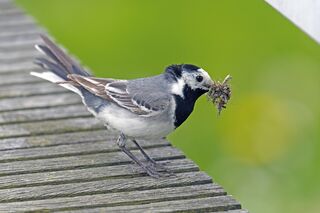Coronavirus Disease 2019
Helping People With BPD Maintain Independence Gained During COVID-19
There could be a silver lining to the isolation of the past year.
Posted April 1, 2021 Reviewed by Jessica Schrader
Key points
- Many individuals with BPD have been forced by circumstances to become more independent.
- Independence can be maintained if supported by friends and family.
- The pandemic is an opportunity to break codependent bonds and replace them with healthy ones.
- A three-step model for converting codependent relationships to healthy relationships is outlined.

The COVID-19 pandemic has been rough on all of us, but particularly rough for those suffering from symptoms of borderline personality disorder (BPD). This is largely because people who suffer from BPD greatly fear abandonment by those they depend on for physical and or emotional functioning. After a year of isolation, after suffering considerably in some cases, many BPD suffers made gains in independent and autonomous functioning. This post will help you understand how to compel your relatives who suffer from BPD to maintain and build upon these gains and not slip backwards as we recover from the pandemic.
Codependency
Many sufferers of symptoms of BPD rely on other people to help them function practically and emotionally. They seek to have others attend to them in the form of taking care of them in order to make them feel valuable. To affirm their self-worth. When they feel threatened, such as by a global pandemic, they cling even tighter to others.
The isolation and need for quarantine associated with the pandemic have cut off many forms of dependent behavior. While emotional support is still generally available through the internet and mobile devices, practical support became more difficult and scarcer. Individuals who were previously relied on for rides, help with shopping, home maintenance, etc. became unavailable.
Sufferers of symptoms of BPD, as well as other individuals embroiled in codependent and dependent relationships were forced to maximize their independence, because others simply could not be around. This is the time to take steps to make sure that these gains do not disappear when we return to more normal social functioning.
Step 1: Honor and celebrate the gains now.
Be sure to tell the person how impressive it is that they were able to step up and become more independent during a global crisis. Point out benefits such as increased autonomy (control) or saving money, etc. This sets a basis for expecting the sufferer of BPD to maintain at least this level of independence once we are able to resume our usual lives.
Step 2: Arrange future plans based on maintenance of independence.
Plan not to resume codependent plans from the past. For example, if you got into the pattern of leaving home earlier to pick up your friend with BPD and driving her to work every morning, then you should now rearrange your schedule, while your friend is working from home, so that if your friend resumes going into her work in the future, she will have to find her own transportation solution rather than relying on you.
Step 3: Maintain expectations and continued progress.
It is likely that your friend or family member with symptoms of codependency will seek to resume your support as soon as he can, perhaps once he is vaccinated. In that case you should non-defensively remind the person that they were capable of independent functioning during the pandemic and that it would be good for them to continue being independent. This is illustrated in the conversation below between a mother and her 25-year-old son, Jimmy.
Jimmy: Mom I am going to bring my laundry to your house tomorrow.
Mom: For what?
Jimmy: So that you can wash it for me.
Mom: Why don’t you wash it yourself?
Jimmy: You used to always do my laundry before COVID.
Mom: But you have not been able to come over here for a year due to the virus and you were doing just fine with your own laundry.
Jimmy: We all have vaccines now. Why can’t you do my laundry again?
Mom: Because you are a young man living on your own and you are perfectly capable.
Jimmy: Oh I see. Just when I need you the most you let me down. I should have known.
Mom: I am here for you, but we clearly see that you don’t need me to do your laundry.
Jimmy: Then how are you there for me?
Mom: We could take a walk together or we go for a cup of coffee.
Jimmy: You want to hang out with me?
Mom: Yes.
Jimmy: OK.
It never occurred to Jimmy that someone might want to be with him. That is why he sought to get others to serve in order to force them to be with him. His discovery that people might want to be with him just because he is Jimmy is a key part of his healing from BPD.
COVID-19 has put the entire population through a traumatic year. It was hardest on those who were already struggling to survive before COVID. Many were in codependent relationships in which they depended on others to survive daily life. Many of them made significant gains in independence and autonomy during these tribulations. Utilizing the three steps described above, some of these gains can continue after the pandemic and even be built upon for significant personal growth in the future.


